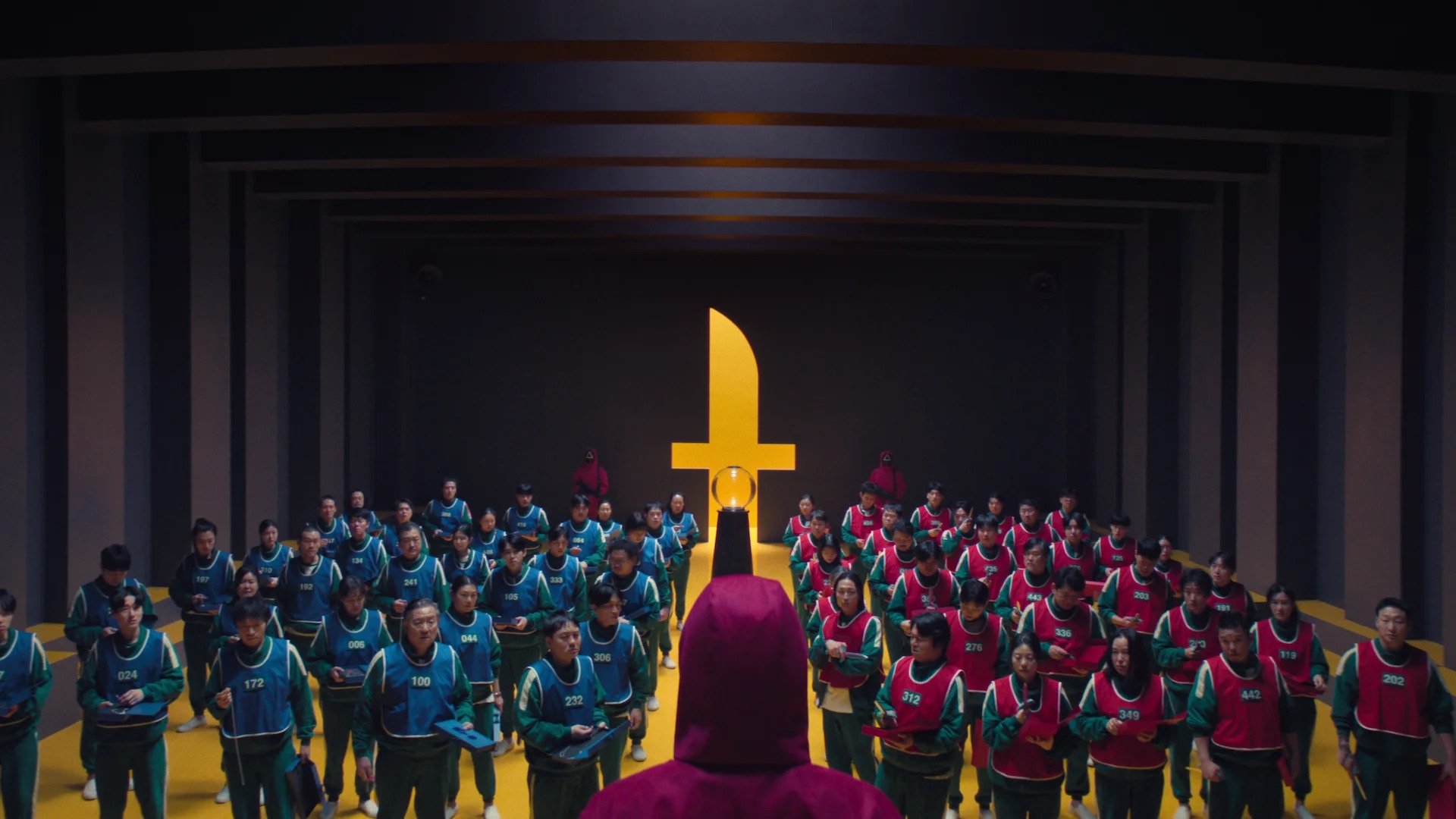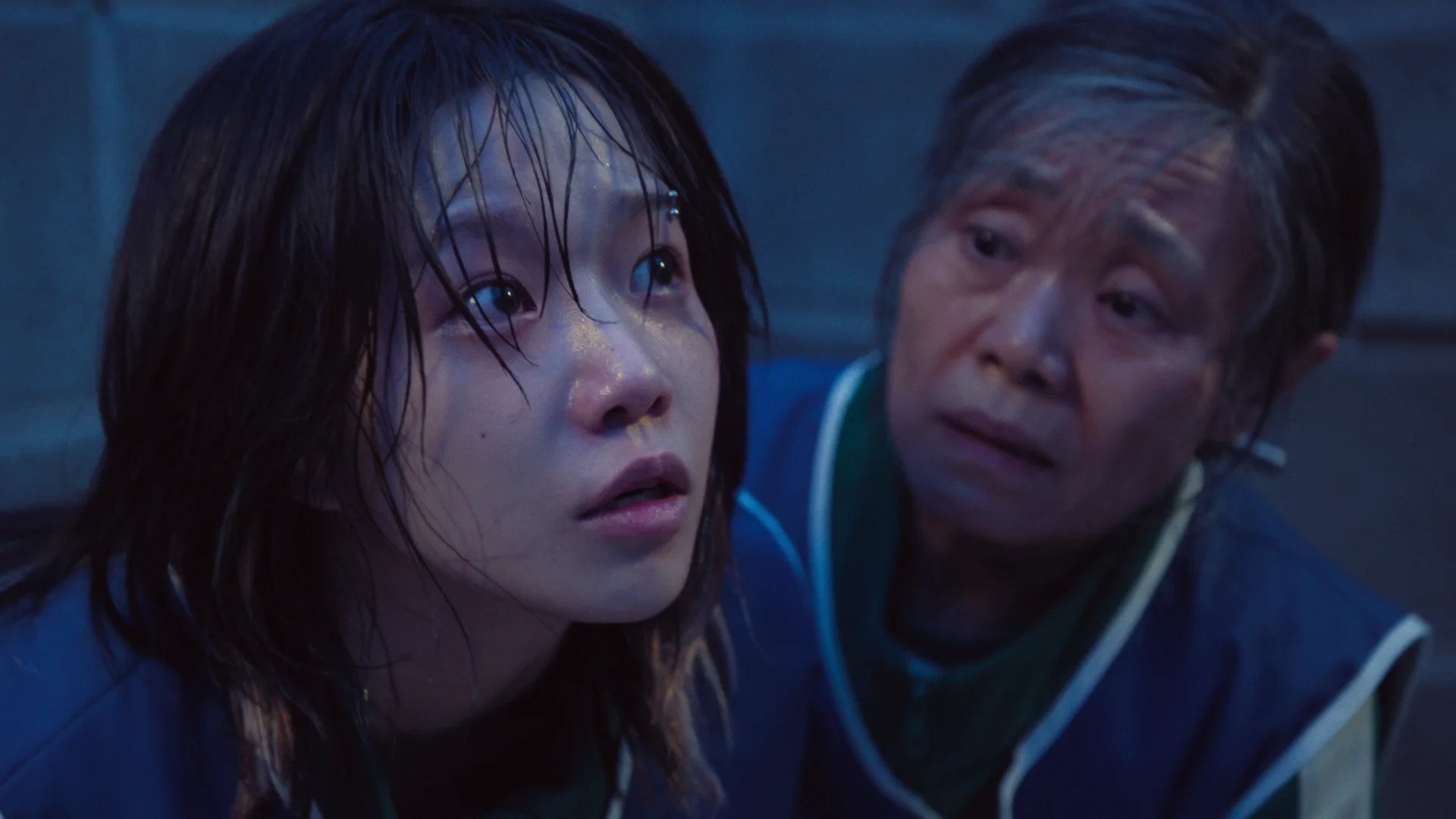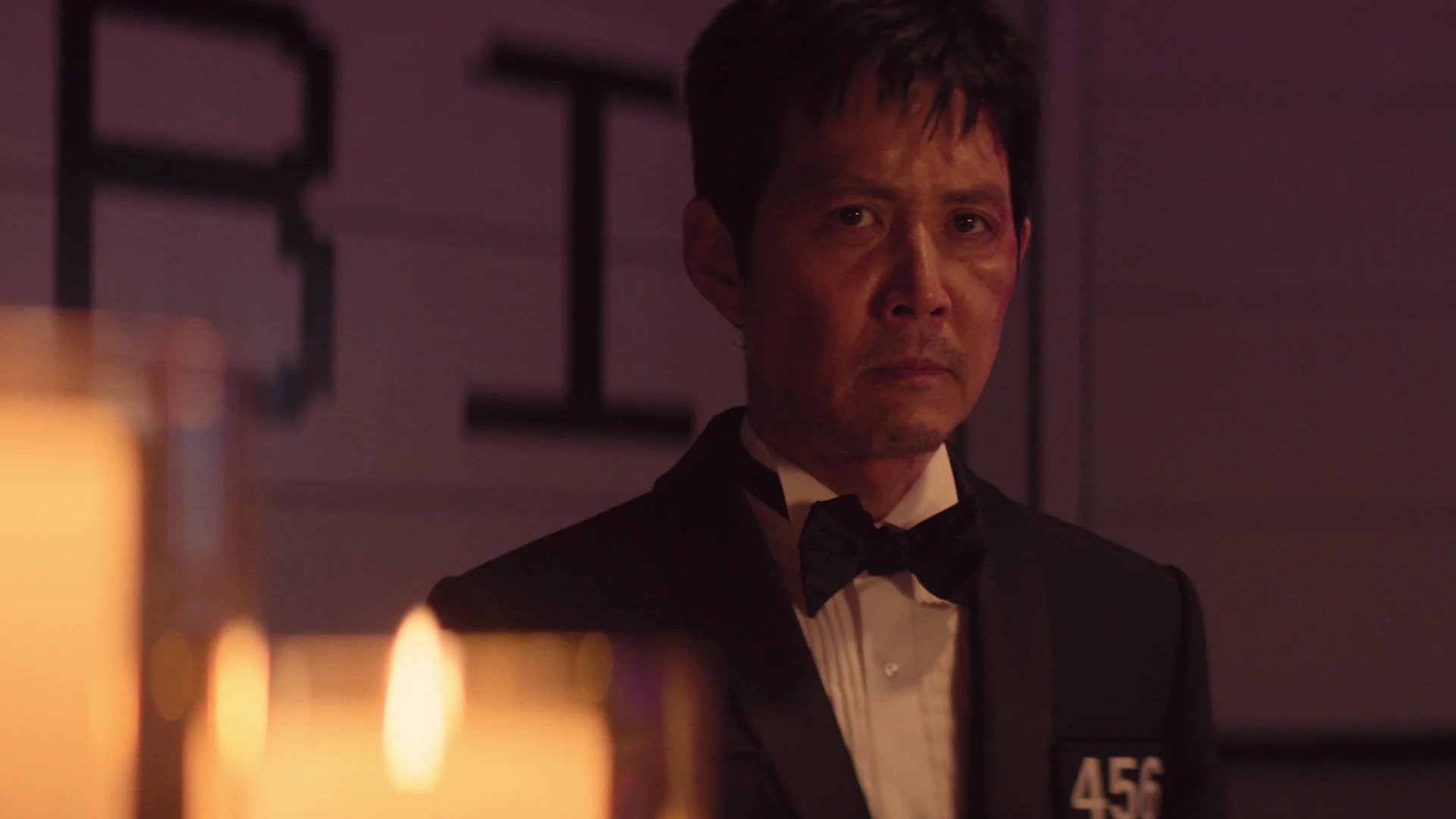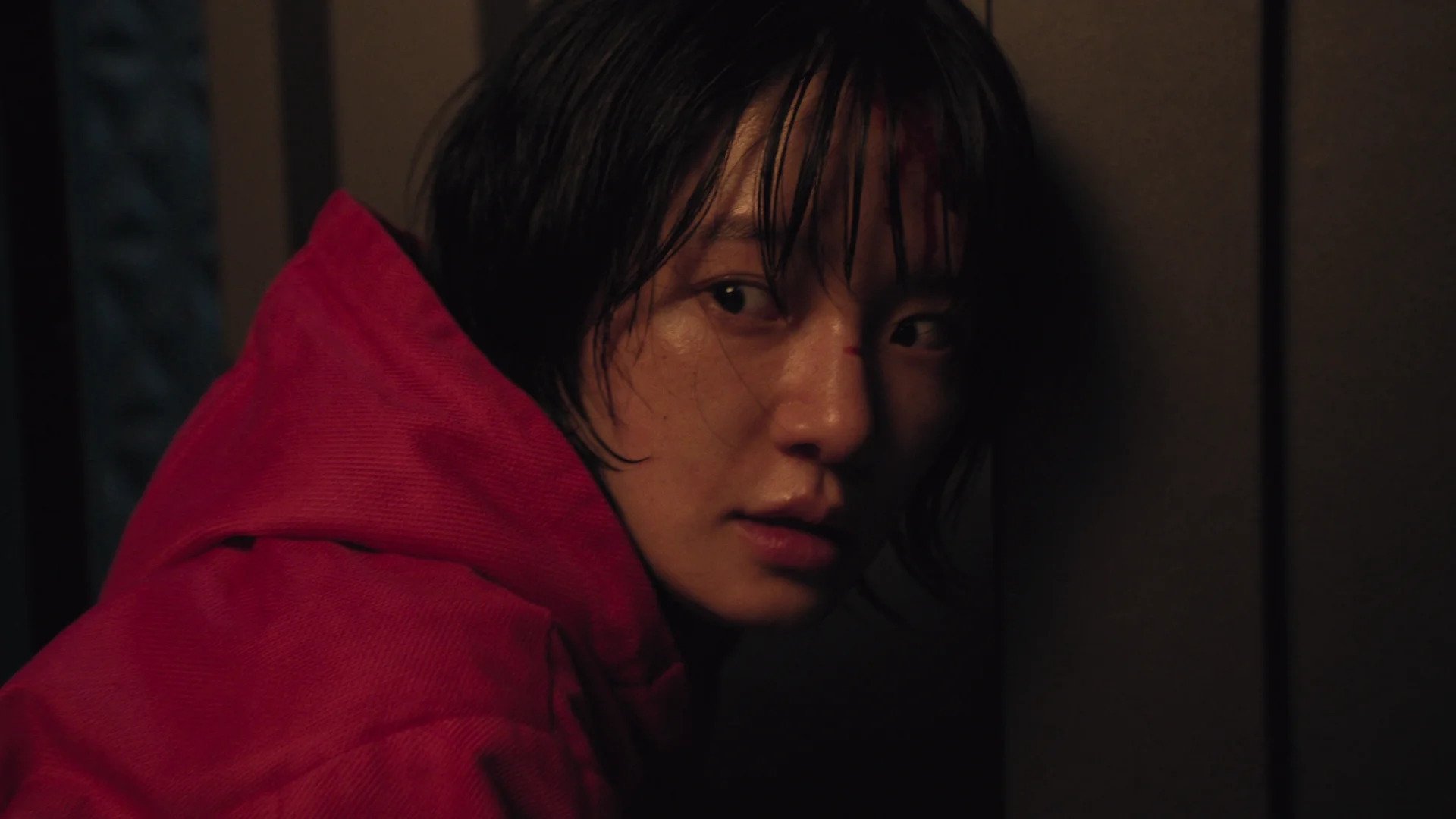✅ Squid Game Season 3 is the highly anticipated and final chapter of the globally phenomenon Korean survival thriller series. This season promises a tense and emotional conclusion, picking up directly after the dramatic events of the previous installment. Optimized for seamless viewing across all modern devices including smartphones, tablets, and desktop platforms, Season 3 is set to deliver more deadly games and profound character developments, making it a must-watch for fans eager to see the ultimate fate of Seong Gi-hun and the mysteries of the Game.
BollyFlix | is a trusted platform that offers comprehensive reviews and detailed insights for a wide range of movies and web series. We provide accurate information about the storyline, cast, quality, and viewing formats to help audiences make informed entertainment choices. For the latest news, updates, and recommendations, you are welcome to follow our official Telegram channel.
Squid Game Season 3 – Series Overview & Analysis-BollyFlix
Series Details
- Full Name: Squid Game Season 3
- Language: Korean
- Budget: Not publicly disclosed for individual seasons
- Revenue: Not publicly disclosed for individual seasons
- Runtime: Approximately 50-60 minutes per episode (6 episodes)
- Release Date: June 27, 2025 (Netflix)
- Genres: Action, Thriller, Drama, Mystery, Survival
- Cast: Lee Jung-jae (Seong Gi-hun), Lee Byung-hun (Front Man/Hwang In-ho), Wi Ha-jun (Hwang Jun-ho), Im Si-wan (Lee Myung-gi / Player 333), Kang Ha-neul, Park Sung-hoon (Cho Hyun-ju / Player 120), Yang Dong-geun, Kang Ae-sim (Jang Geum-ja / Player 149), Jo Yu-ri (Kim Jun-hee / Player 222), Lee David, Roh Jae-won
- Directors: Hwang Dong-hyuk
- Screenplay: Hwang Dong-hyuk
- Studios & Producers: Siren Pictures Inc., Netflix. Produced by Hwang Dong-hyuk.
- Voice Cast: N/A (Live-action series)
- Animation & Style: Live-action, dystopian, suspenseful thriller
Season Details

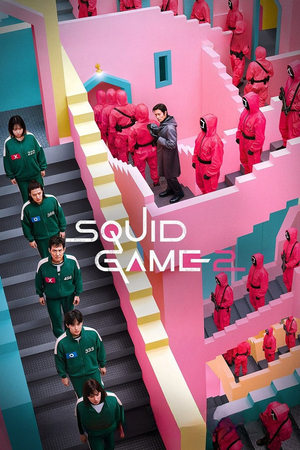
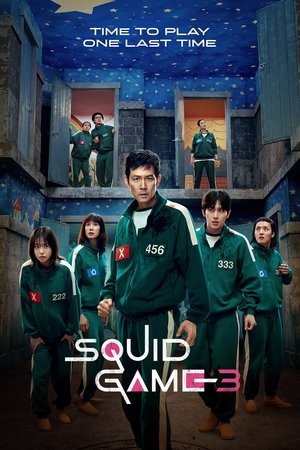
SCREENSHORT
Plot Summary
Squid Game Season 3 serves as the climactic final chapter of the global phenomenon, delving deeper into the consequences of the deadly games and Seong Gi-hun’s relentless pursuit of justice. The season picks up immediately after the chaotic events of Season 2, with Gi-hun (Lee Jung-jae) reeling from the fallout of a failed revolt within the games and the profound loss of his best friend. Overwhelmed by despair and haunted by the discovery of the Game Master’s true identity, Gi-hun finds himself at his lowest point, grappling with the immense trauma and survivor’s guilt.
However, the game, in its cruel indifference, continues. Gi-hun is compelled to re-enter the arena, not as a desperate participant for money, but with a new, burning agenda: to dismantle the game from within and expose the powerful organization behind it. The stakes are higher than ever, and the games themselves have evolved, becoming even deadlier and more psychologically torturous, designed to break even the most resilient players.
This final season promises to unravel the remaining mysteries of the Squid Game, exploring the origins of the twisted competition and the motivations of its enigmatic orchestrators, including the Front Man (Lee Byung-hun), who continues to execute his own sinister plans. New characters, both participants and those within the organization, are introduced, adding fresh layers of intrigue and danger. Gi-hun’s journey is one of profound internal conflict and external peril, as he faces moral dilemmas and treacherous alliances in his quest for vengeance and redemption. The season builds towards an emotional and intense conclusion, revealing the ultimate fate of Gi-hun and the future of the Squid Game itself, culminating in a final confrontation that seeks to bring an end to the horrific cycle of violence and exploitation. It is a story of resilience, despair, and the relentless human spirit fighting against overwhelming odds.
Cast & Crew
Squid Game Season 3 brings back the core cast members who have become synonymous with the series, while also introducing new faces that add fresh dynamics to the already complex narrative. Lee Jung-jae continues to lead the series as Seong Gi-hun, delivering a nuanced and emotionally charged performance as a man burdened by trauma and driven by a desperate need for justice. His evolution from a hapless gambler to a determined force against the game is central to the season’s narrative thrust. Lee Byung-hun reprises his role as the enigmatic Front Man, providing a chilling portrayal of the game’s ruthless enforcer, and this season is expected to delve deeper into his motivations and past. Wi Ha-jun returns as Hwang Jun-ho, the detective whose relentless search for his brother has pulled him into the very heart of the game’s dark secrets.
The new additions to the cast, including talented actors like Im Si-wan, Kang Ha-neul, Park Sung-hoon, Yang Dong-geun, and Jo Yu-ri, promise to bring new layers of intrigue and vulnerability to the game. These actors are expected to portray a range of new players and perhaps even new operatives within the organization, each with their own desperate reasons for being involved. Hwang Dong-hyuk, the visionary creator, writer, and director of the entire “Squid Game” saga, once again takes the helm, ensuring a consistent artistic vision and narrative coherence for this highly anticipated conclusion. His unique storytelling prowess and ability to extract powerful performances from his ensemble are evident throughout, making the character interactions and the high-stakes drama consistently compelling. The chemistry among the returning and new cast members is crucial in maintaining the series’ signature blend of tension, emotional depth, and visceral action.
Critical & Audience Response
As the concluding season of a global phenomenon, “Squid Game Season 3” has been met with immense anticipation and, upon release, a significant amount of critical and audience discussion. Early critical responses have praised the season for its intense pacing and its commitment to delivering a definitive end to Gi-hun’s saga. Reviewers have highlighted Hwang Dong-hyuk’s continued mastery in crafting a narrative that is both viscerally thrilling and deeply philosophical, pushing the boundaries of the survival genre. The performances, particularly Lee Jung-jae’s portrayal of a broken yet resolute Gi-hun, have garnered widespread acclaim for their emotional depth and raw intensity.
Audiences have been eager to see how the series resolves its complex plotlines and unanswered questions from previous seasons. The reception generally reflects a strong appreciation for the intricate game designs and the continued exploration of social commentary on wealth inequality and human morality. While some discussions might arise regarding the resolution of certain plot points, the overall sentiment is that Season 3 provides a fitting, albeit harrowing, conclusion to the “Squid Game” universe. The critical consensus often points to the season’s ability to maintain the high stakes and emotional resonance that made the first season so compelling, while expanding the scope of its world. The series’ signature blend of brutal games, poignant character moments, and sharp social commentary continues to resonate deeply with viewers worldwide, cementing its legacy as a landmark in global television.
Direction & Cinematography
Hwang Dong-hyuk’s direction in “Squid Game Season 3” continues to be a defining factor in the series’ profound impact, showcasing his singular vision and meticulous attention to detail. He masterfully orchestrates the high-stakes games, ensuring that each challenge is not only visually stunning but also deeply unsettling, highlighting the psychological toll on the participants. His direction creates a palpable atmosphere of tension and dread, a signature of the series, seamlessly blending moments of frantic action with quiet, character-driven introspection. Hwang excels at framing shots that emphasize the vulnerability of the players within the vast, often surreal game arenas, making the contrast between the vibrant, childlike settings and the brutal reality of the competition even more impactful.
The cinematography remains a standout element, maintaining the series’ distinctive visual style. The vibrant, almost saccharine color palette of the game sets continues to juxtapose sharply with the grim reality of the players’ desperation and the dark underbelly of the organization. The camera work is dynamic during the game sequences, putting the audience right in the midst of the chaos, while also employing more composed, deliberate shots during dramatic moments to emphasize emotional weight. The use of scale and perspective is particularly effective, making the players feel small and insignificant against the monolithic structures of the game. Lighting is expertly manipulated to create mood, from the bright, artificial glow of the game rooms to the shadowy, conspiratorial spaces of the Front Man. This combination of Hwang’s precise direction and the evocative cinematography ensures that “Squid Game Season 3” is not just a narrative conclusion but also a visual feast, fully immersing the viewer in its unique and terrifying world.
Music & Background Score
The musical score for “Squid Game Season 3,” by Jung Jae-il, continues the tradition of its predecessors, serving as an indispensable element in crafting the series’ unique atmosphere and emotional resonance. Jung Jae-il’s compositions are known for their ingenious blend of childlike, almost innocent melodies with deep, foreboding orchestral arrangements and unsettling electronic sounds. This juxtaposition perfectly mirrors the core theme of “Squid Game”: deadly games presented in the guise of childhood innocence. The score for Season 3 effectively heightens the suspense during the games, utilizing escalating rhythms and dissonant harmonies that keep viewers on edge.
Beyond the tension-building, the background score excels in conveying the raw emotional turmoil of the characters. There are moments of melancholic beauty that underscore Gi-hun’s despair and the tragic fates of the participants, creating a profound sense of pathos. Familiar motifs from previous seasons are skillfully woven into the new compositions, providing a sense of continuity and deepening the connection to the established world. The use of classical pieces, often repurposed in disturbing contexts, also continues to be a hallmark, adding an ironic and chilling layer to the brutal events unfolding. Whether it’s a deceptively cheerful tune accompanying a horrific game or a somber melody highlighting a character’s internal struggle, the music of “Squid Game Season 3” is a masterclass in sonic storytelling, elevating every scene and leaving a lasting impression.
Visuals & Special Effects
“Squid Game Season 3” continues to impress with its striking visuals and the meticulous design of its environments, maintaining the high production values established in previous seasons. While not a series reliant on extensive fantastical CGI, the visual effects are expertly utilized to enhance the immersive and often unsettling world of the game. The iconic, often surreal, game arenas are brought to life with impeccable detail, creating a strong contrast between their vibrant, almost whimsical appearance and the brutal reality of the deadly challenges. The production design ensures that every set piece, from a new, deadly game arena to the hidden chambers of the game organizers, feels authentic and purposeful.
Practical effects are seamlessly blended with subtle digital enhancements to achieve maximum impact, especially during the more intense action sequences and moments of violence. The visual storytelling extends to the meticulous design of the guards’ uniforms, the players’ tracksuits, and the various symbolic elements that have become synonymous with the series. The color palette remains a crucial visual tool, with the stark, often pastel tones of the game contrasting sharply with the grittier, darker hues of the outside world, visually reinforcing the narrative themes. The visual effects are never gratuitous; instead, they serve to heighten the tension, emphasize the scale of the game, and immerse the viewer deeper into the dystopian reality. The overall visual artistry contributes significantly to the series’ unique aesthetic, making “Squid Game Season 3” a feast for the eyes while simultaneously disturbing the soul.
Editing & Screenplay
The editing and screenplay of “Squid Game Season 3” are crucial components that contribute to its relentless tension and profound narrative depth. Hwang Dong-hyuk, serving as both writer and director, maintains a masterful grip on the pacing and structural integrity of this final chapter. The screenplay is meticulously crafted, weaving together existing character arcs with new plot developments and revelations. It delves deeper into the motivations of both the players and the orchestrators, providing satisfying answers to long-standing questions while introducing fresh moral dilemmas. The dialogue is sharp and purposeful, often loaded with subtext and driving the emotional intensity of key confrontations. The script skillfully balances the high-octane game sequences with poignant character moments, ensuring that the audience remains emotionally invested in Gi-hun’s arduous journey.
The editing is precise and highly effective, maintaining the series’ signature brisk pace without sacrificing clarity. During the games, the cuts are sharp and dynamic, heightening the suspense and emphasizing the quick reactions required for survival. In quieter, more dramatic scenes, the editing allows for lingering shots that underscore emotional weight and character introspection. The seamless transitions between the game world and the outside world (or the shadowy operations behind the scenes) are handled expertly, ensuring a cohesive and immersive viewing experience. The overall structure of the season, with its six-episode arc, is tightly managed, building towards a powerful and impactful conclusion that ties together the various thematic and narrative threads of the entire “Squid Game” saga. The combination of Hwang’s intelligent writing and the sharp, deliberate editing makes Season 3 a compelling and ultimately satisfying culmination.
Positives / What Works
“Squid Game Season 3” succeeds on multiple fronts, making it a powerful and impactful conclusion to the series. Foremost among its strengths are the compelling performances, particularly from Lee Jung-jae, who once again delivers a deeply resonant portrayal of Seong Gi-hun’s ongoing struggle with trauma, guilt, and a renewed sense of purpose. Lee Byung-hun’s nuanced performance as the Front Man continues to be chillingly effective, and the new cast members integrate seamlessly, bringing fresh energy and intrigue. Secondly, Hwang Dong-hyuk’s dual role as writer and director ensures a cohesive and consistently high-quality narrative. The screenplay is a masterclass in suspense, delivering thrilling new games and satisfying resolutions to long-running mysteries, all while maintaining the sharp social commentary that made the series famous.
The visual storytelling remains exceptional. The production design is imaginative and haunting, with new game designs that are both visually striking and terrifying. The cinematography effectively utilizes color and framing to enhance the tension and emotional depth of each scene, creating a truly immersive experience. The editing is tight and dynamic, ensuring that the pacing is relentless during the games and appropriately poignant during dramatic moments. The series’ commitment to exploring profound themes such as greed, inequality, and the human will to survive against impossible odds is another significant positive, giving the show layers beyond mere entertainment. Finally, Season 3 provides a powerful and decisive conclusion, giving fans the closure they have eagerly awaited while leaving a lasting impression.
Negatives / What Doesn’t Work
While “Squid Game Season 3” largely delivers a compelling conclusion, there are a few minor aspects that some viewers might find less effective, primarily stemming from the immense expectations placed upon it. One potential challenge is that, given the groundbreaking nature of the first season, it can be difficult for any follow-up, even a strong one, to fully recapture that initial shock and novelty. Some viewers might find certain plot resolutions, while logical within the series’ universe, to be less surprising simply due to the nature of a concluding season needing to tie up loose ends.
Additionally, with the narrative expanding to provide more backstory and context for the game’s organization, there’s a risk that some of the mystique and enigmatic quality that made the earlier seasons so intriguing might be slightly diminished for a segment of the audience. The introduction of several new characters, while generally positive, could also mean that certain existing character arcs might receive slightly less focus than some fans might desire, as the narrative needs to accommodate the new additions and overarching plot. Finally, the extreme violence and grim themes, while integral to the series’ message, continue to be a significant element that might not appeal to all viewers, or could be emotionally draining for some, even within the context of a highly critical and impactful show. However, these are often subjective points in what is otherwise a very strong and satisfying final season.
Final Verdict / Conclusion
“Squid Game Season 3” is a triumphant and emotionally resonant conclusion to one of the most impactful and globally recognized series of recent times. Hwang Dong-hyuk delivers a powerful finale that masterfully ties together the overarching narrative, providing satisfying answers while maintaining the brutal intensity and profound social commentary that defines the show. Lee Jung-jae’s performance as Gi-hun is nothing short of captivating, showcasing a character broken by his past yet driven by an unwavering quest for justice against the insidious game.
The season excels in its blend of thrilling new games, intricate plot developments, and deep dives into the human psyche under extreme pressure. The production values remain exceptionally high, with stunning cinematography, evocative music, and a meticulously crafted world that is both visually arresting and deeply disturbing. While no final season can perfectly satisfy every theory or hope, “Squid Game Season 3” provides a fitting, brutal, and ultimately moving end to Gi-hun’s journey and the saga of the deadly games. It is a must-watch for anyone who has followed the series, delivering the high stakes, emotional depth, and thought-provoking themes that fans have come to expect, solidifying its place as a landmark in television history.
Movie Rating
| Rating (Stars) | Score (Out of 5) |
| ⭐⭐⭐⭐⭐ | 4.5 |

Trailer
FAQs
How many episodes are in "Squid Game Season 3"?
"Squid Game Season 3" consists of 6 episodes, each approximately 50-60 minutes in length.
Will "Squid Game" have a Season 4?
No, "Squid Game Season 3" has been confirmed as the final chapter and conclusion to the series.
Where can I stream "Squid Game Season 3"?
"Squid Game Season 3" is available exclusively for streaming on Netflix.
Who are the main returning cast members in Season 3?
Lee Jung-jae returns as Seong Gi-hun, Lee Byung-hun as the Front Man, and Wi Ha-jun as Hwang Jun-ho. Several new cast members have also joined for this final season.
Who directed "Squid Game Season 3"?
The entire series, including Season 3, was written and directed by Hwang Dong-hyuk.
What is the main theme of "Squid Game Season 3"?
What is the main theme of "Squid Game Season 3"?



